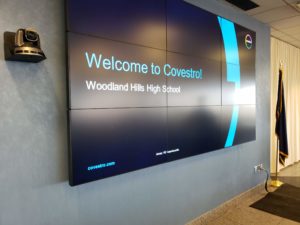Woodland Hills students to look at chemicals from different angles as part of Student Powered Solutions project
Students from three entrepreneurship classes in Woodland Hills School District kicked off a project with Covestro in January as part of our Student Powered Solutions (SPS) program. The kickoff came just a month following conclusion of three SPS projects at Hampton Middle School.
Before beginning a tour of Covestro’s North American headquarters and laboratories, several of the company’s staffers briefed the Woodland Hills students on a challenge the company and others in its industry face: persuading people—possibly more so the younger they are—that not all chemicals are harmful. 
The opening presentation and the tour were designed to dispel that notion and demonstrate that the polymers Covestro produces have environmental benefits.
For one thing, none go into the single-use plastics that have been so much in the news for polluting waterways. Instead, Covestro’s polymers are used in durable goods like automobiles, mattresses and refrigerators. More importantly, a number of the uses have resulted in environmental benefits, like better mileage in cars where plastics have been used to replace many metal components like bumpers.
Presentations before the tour and in the labs were an eye-opener for many students.
“It’s all a lot more complicated than I thought,” said Chloe, young woman responding to a question from a chemist who quizzed students about their perceptions after they’d toured his lab.
Creating projects to assess and change student perceptions could be equally complicated, students seemed to agree. Over lunch following the tour, Zachary, a ninth grader, for example, said he needed to learn more about instances where environmental tradeoffs favor plastics. “We need to gather evidence,” he added.
Like others, he was enthused about the project because it involves him in a real-world issue. Doing research for answers and evidence and applying learning to the real world is key to the kind of Project Based Learning Experiences that SPS supports. By working in teams, partnering with companies and taking charge of their projects, students also develop soft skills, like collaboration, communications and critical thinking.
Earlier in the month, three middle school classes at Hampton School District, middle schoolers wound up SPS projects as part of their science classes. One class partnered with 412-Food Rescue, a nonprofit that tries to curtail food waste, on ways to reduce food waste in the school cafeteria. The other two took on a National Geographics challenge to find ways of reducing water pollution.






